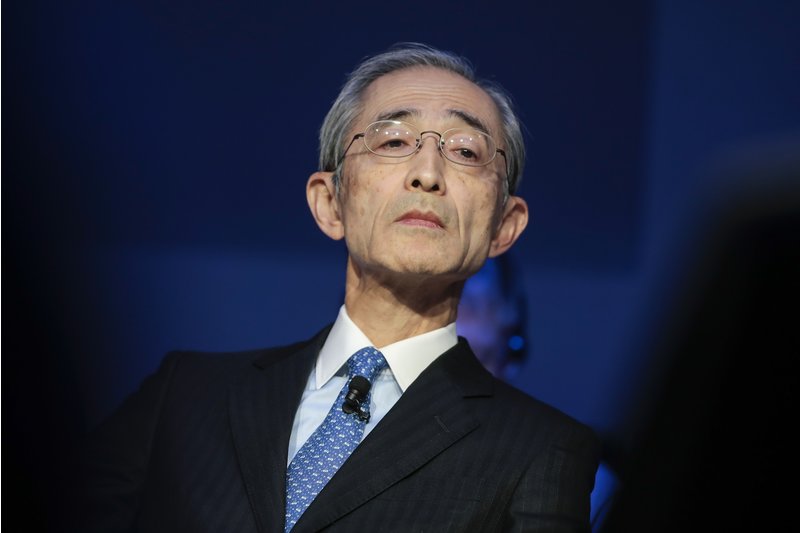三菱日聯(lián)或在2020年推出區(qū)塊鏈支付

|
為了提高支付速度,降低支付成本,日本最大的銀行參與開發(fā)了一項新區(qū)塊鏈服務(wù)。 過去一年半,三菱日聯(lián)金融集團(Mitsubishi UFJ Financial Group,MUFG)與美國科技公司Akamai合作設(shè)計了一種區(qū)塊鏈。兩家公司表示,該項區(qū)塊鏈服務(wù)每秒可處理100萬筆交易,延遲時間,即在分布式總賬上確認一批交易的時間,不超過2秒。兩家公司表示通過不斷完善技術(shù),預(yù)計該項服務(wù)未來每秒可處理1,000萬筆交易。 而全球第一個區(qū)塊鏈支持的加密貨幣比特幣,每秒可處理7筆交易,延遲超過10分鐘。 不同于比特幣的區(qū)塊鏈,三菱日聯(lián)與Akamai開發(fā)的區(qū)塊鏈屬于“許可鏈”,只有經(jīng)過驗證的計算機才能加入網(wǎng)絡(luò),管理和確認支付。該區(qū)塊鏈基于Akamai公司的云服務(wù)Akamai智能平臺。 區(qū)塊鏈技術(shù)一直是銀行和許多公司之間的熱門話題,他們希望通過區(qū)塊鏈改造數(shù)據(jù)庫。許多大公司對這項技術(shù)產(chǎn)生了濃厚興趣,如摩根大通(JPMorgan Chase)、沃爾瑪(Walmart)、IBM、馬士基(Maersk)、戴姆勒(Daimler)、空中客車(Airbus)等。 三菱日聯(lián)總裁兼CEO平野信行在聲明中表示:“多年來,金融行業(yè)一直在嘗試利用區(qū)塊鏈保證交易安全,加快交易處理速度,降低相關(guān)成本。”公司相信這項新技術(shù)將“支持更大規(guī)模的高速支付交易,并且不會降低防范欺詐交易需要保證的安全水平。” Akamai公司研發(fā)部門Akamai Labs的首席技術(shù)官安迪·尚帕尼表示,他的團隊與三菱日聯(lián)共同開發(fā)的區(qū)塊鏈,最適合在線進行傳統(tǒng)支付交易。他預(yù)計這項技術(shù)將為“微支付類交易”(即用戶經(jīng)常為某些服務(wù)進行的小額支付,如支付幾美分閱讀一篇文章等)和“物聯(lián)網(wǎng)”類交易(如洗衣機等自動運行的聯(lián)網(wǎng)設(shè)備,在洗滌劑不足時自動下單購買)掃清道路。 尚帕尼稱:“我們將在2020年初,與三菱日聯(lián)攜手推出支付網(wǎng)絡(luò)應(yīng)用。” 在涉足區(qū)塊鏈技術(shù)的大公司當(dāng)中,三菱日聯(lián)是最為樂觀的一家。日本媒體《Manichi》在今年早些時候報道稱,三菱日聯(lián)計劃在幾個月內(nèi)測試自己的加密貨幣。此外,該公司還投資了美國最大的加密貨幣交易所Coinbase,并攜手IBM、金融行業(yè)巨頭R3、日本大型企業(yè)集團日立(Hitachi)、日本IT公司NTT Data和數(shù)字支付公司Ripple等開展了區(qū)塊鏈試點項目。 Akamai公司CEO兼聯(lián)合創(chuàng)始人湯姆·萊頓在聲明中表示,兩家公司聯(lián)合開發(fā)的區(qū)塊鏈解決了“妨礙區(qū)塊鏈廣泛應(yīng)用的”技術(shù)障礙,如安全性和速度等問題。 尚帕尼表示,Akamai在去年年底已經(jīng)申請了該項技術(shù)的專利。(財富中文網(wǎng)) 譯者:劉進龍/汪皓? |
Japan’s biggest bank has codeveloped a new blockchain, or distributed financial ledger, to boost the speed and lower the cost of payments. Over the past year and a half, Mitsubishi UFJ Financial Group, or “MUFG” for short, partnered with Akamai, a U.S. tech company, to design a blockchain that can handle 1 million transactions per second at latencies of less than 2 seconds, meaning the time it takes to confirm a batch of transactions on the ledger, the companies said. They expect the service to be capable of handling 10 million transactions per second as they continue to improve the technology, they said. In contrast, Bitcoin, the original cryptocurrency backed by the world’s first blockchain, can process seven transactions per second at latencies exceeding 10 minutes. Unlike Bitcoin’s blockchain, MUFG and Akamai’s is “permissioned,” meaning that only verified computers can join the network that orders and confirms payments. The blockchain is built on Akamai’s cloud service, called Akamai Intelligent Platform. Blockchain technology has been a hot theme among banks and other companies looking to revamp their databases. The trend has attracted interest from big names, such as JPMorgan Chase, Walmart, IBM, Maersk, Daimler, Airbus, and plenty of corporations in between. “For years, the financial industry has sought to utilize blockchain to secure and hasten transaction processing, and lower associated costs,” Nobuyuki Hirano, president and group CEO of MUFG, said in a statement. His firm is confident, he said, that the new tech will “support significantly greater volumes of high-speed payment transactions without compromising the level of security required to combat fraudulent transactions.” Andy Champagne, chief technology officer of Akamai Labs, an R&D unit at the tech firm, said that the blockchain his team co-created with MUFG is best suited for making traditional payments online. He said he eventually expects the tech to help pave the way for “micropayment-type transactions,” where many people pay frequent, minuscule fees for services, like paying a few cents to read an article on a website, as well as “Internet of Things”-style payments, where connected devices operate autonomously, like a washing machine automatically placing an order for more detergent when supplies run low. “We expect to roll forward on the payment network application with Mitsubishi in early 2020,” Champagne said. MUFG has been one of the most bullish big corporations to dabble in blockchain tech. The bank is planning to test its own cryptocurrency in the months to come, as Manichi, a Japanese newspaper, reported earlier this year. The firm also invested in Coinbase, the biggest U.S. cryptocurrency exchange, and has worked on blockchain pilots and projects with IBM, financial industry consortium R3, Japanese conglomerate Hitachi, Japanese IT firm NTT Data, and digital payments firm Ripple, among others. Tom Leighton, Akamai’s CEO and cofounder, said in a statement that the jointly developed blockchain should address technical obstacles, like security and speed, “that have to date hindered broader use of blockchain.” Champagne said Akamai filed for patents covering the tech at the end of last year. |













